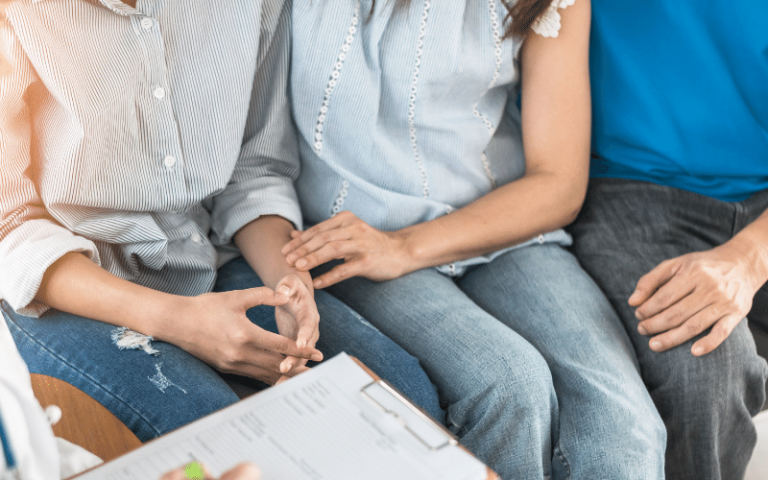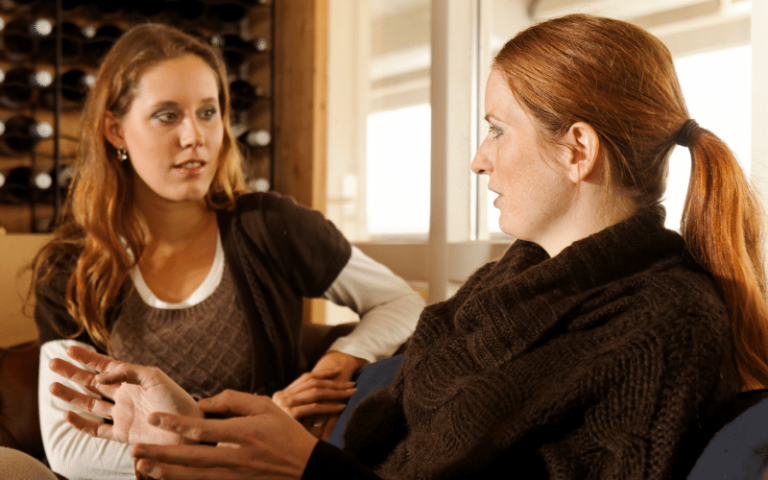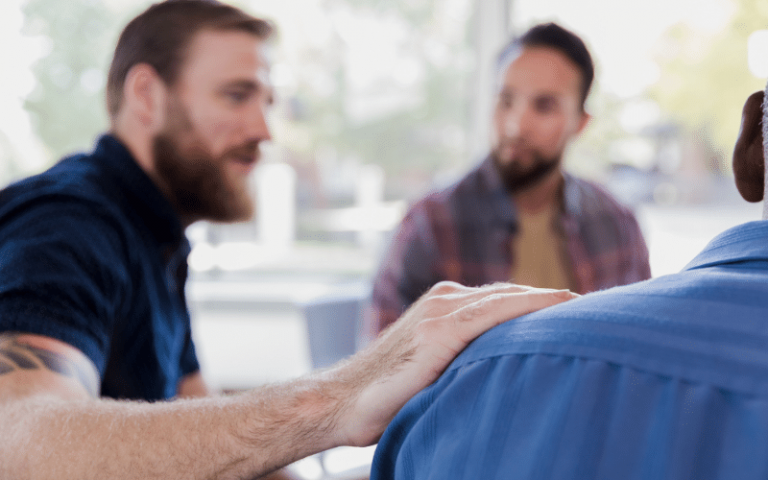Being a friend to a friend with an addiction to drugs, alcohol or a behaviour is no easy task. Addiction is a devastating illness, and the impact can often be more detrimental for family and friends than for the sufferers themselves. Addiction is like a hurricane, destroying everything in its path. Beginning the process of helping someone into recovery can be draining to both your time, finances and emotions. Understanding the difference between supporting someone through their recovery and ‘helping’ them, or rather just enabling their behaviour is crucial.
Always remember, your loved one’s addiction is not your fault. Many family members and friends will blame themselves for the situation, but it’s more useful to look at addiction for what it is: a progressive and dangerous mental illness that doesn’t discriminate based on age, gender, wealth, background or ethnicity. It isn’t your fault.
The best thing you can do now is educate yourself: on addiction, the support available to the addict, and the support available to family and friends. You don’t need to go through this alone; there is help available and things can get better. The Providence Projects has been running since 1996, providing residential detox and rehabilitation programmes to individuals suffering with alcohol, drug, and gambling addictions for over 25 years.
Our evidence-based, holistic approach to treatment means we take into account the individual as a whole – and always involve family and friends throughout the treatment process. Our family programme is extremely popular; we organise therapeutic meetings with the individual and their family during their time in rehab and offer intensive monthly ‘Family Days’, comprised of various workshops, group therapy, team tasks and psycho-educational talks. For more information on how the Providence Projects can help you or your loved one find freedom and recovery from addiction, call us today.

How do I help my friend?
Sadly, the impact of addiction is often felt most by everyone around the one who is currently battling an addiction to a substance. The sufferer is often high or drunk, or in a relapse, and blind to the reality of their illness. It is those who watch on, in shock and sober, as they witness the chaos unfolding in front of them.
Friends and family will often feel at a loss as to how to help, powerless over the situation. This is normal. It is a very unique, difficult situation to be in. They may resort to various methods to try and help; but ultimately, unless the addict or alcoholic really wants to change themselves, there is little to be done. Below are some do’s and don’ts when trying to help a friend or family member, and these are designed to protect both parties. It is so important to make your own self-care a priority, as often loved ones will sacrifice their own health and wellbeing whilst trying to save someone else.
Do's & Dont's
Do – Build Trust
Trust is often lost through addiction, due to the repeated lies and broken promises. The constant conversations about change, or not engaging in the addictive behaviours, only for the addict to go and do just that the next day. Building trust is a cornerstone of recovery, and it requires both the friends and family as well as the addict. It can be helpful to separate the lies from the person telling them: they are a result of the brain changes caused by the alcohol, drugs or gambling.
Do – Set Boundaries
Setting boundaries is an important part of the recovery process: you need to make it clear to the addict what behaviour is unacceptable and what you will no longer tolerate. Addiction is a disease of manipulation and deceit, so when they get clean and sober, boundaries help both the addict and their loved ones to move away from a state of co-dependency or from enabling the addict and their self-destructive behaviours.
Do – Be honest about your feelings
Having an honest conversation with your addict or alcoholic can be so beneficial. It’s true that these situations can be uncomfortable for everyone, but they are also where the healing begins. The psychological impact of watching someone you love destroy themselves with drugs and alcohol will inevitably impact on you. By discussing your feelings openly and honestly with your loved one, it can help peel away some of their denial about their addiction, and hopefully move them towards recovery and seeking help for their problem.

Don’t – Criticise
The pain and damage caused by addiction can make it difficult for friends and families to want to offer their support. Often, it’s tempting to want to penalise the addict or alcoholic although this rarely helps. Pushing them away or punishing them at such a difficult time in their lives will often only make things worse, and add to the shame and guilt that feeds the cycle of substance abuse. Try to approach your loved one with empathy and understanding, avoid attributing blame, and walk away from conversations that become heated and argumentative rather than constructive and respectful.
Don’t – Have high expectations or expect immediate change
Recovery is a lifelong process, and relapse is a very real danger over the years. It continues far after the initial phase of getting clean and sober and stopping using mind-altering substances. If you want to support your friend, it’s vital that you respect the fact that recovery simply doesn’t happen overnight. Achieving and maintaining sobriety requires a profound shift in a person’s habits and behaviours, and it is often a daily practice and intention to remain in recovery. Try to be patient with your loved one, and support them with their continued efforts to change.
Get support for yourself
Being in a friendship or a relationship with an active addict or alcoholic can be incredibly stressful. Trying to support them can be difficult, and it is even harder doing it alone. It is really important that you accept what you are going through and seek support for the issues and how they may be impacting on you. There are a wealth of resources available to family members and friends, both online and in-person. These include support groups such as Al-Anon, Famanon or Naranon. Teenagers and younger children can also receive support and guidance from Alateen. Attending these groups can be very cathartic, and provide you a safe space to share your experiences, feelings and emotions, and to connect with other people and build friendships with those who have similar experiences.
Take time out to do things you enjoy too, whether it’s reading your favourite book, going to a yoga class, or just having a walk and coffee with friends. You need a break from the addict as it is such an all-consuming illness. It may also be helpful to seek support from a trained counsellor or therapist.

Get support for your loved one
Getting support for your loved one or friend will offer them the best chance of a lasting and successful recovery. Depending on the nature and severity of their addiction problem, it is likely that they will need clinical help in the form of undergoing a residential rehab or detox programme. There are lots of helpful resources, where you can learn about the best rehabilitation or recovery programme to meet your needs. Private rehab clinics such as the Providence Projects often offer family programmes, which can benefit all parties by addressing addiction as a family illness. These programmes often challenge the unhelpful dynamics and behaviours within relationships, and help everyone to heal from the past and move forward.
If you are looking for help for yourself or a loved one, please reach out to us. You can find more information on any of the issues raised by contacting our expert team of therapists and counsellors at the Providence Projects. We are on hand 24/7 to answer any questions you may have, and to provide support and guidance for what you are going through.



